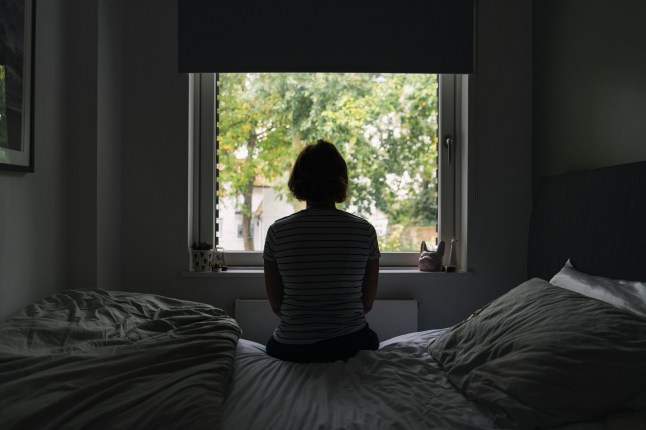
Survivors and their families have been left feeling like prisoners in their own home,limiting themselves to that small area through fear of bumping into perpetrators (Picture: Getty Images)
Domestic abusers and sex offenders will be ‘locked in’ to specific restrictions zones to keep them away from victims when they are released from prison,under a new law.
Until now,exclusion zones have prevented offenders from going where their victims live.
But many survivors – and their families – have been left feeling like prisoners in their own home,limiting themselves to that small area through fear of bumping into perpetrators.
The new plans shifting that responsibility onto perpetrators by placing more restrictions on their movements have been welcomed by campaigners.
Diana Parkes CBE and Hetti Barkworth-Nanton CBE,co-founders of the Joanna Simpson Foundation,said: ‘For far too long,victims have had to reshape their lives to avoid their offenders.
‘Exclusion zones have made victims feel trapped as though they are the ones serving a sentence,with the victim carrying the weight of someone else’s crime.
‘This announcement from the Ministry of Justice is the much-needed change that has long been called for and is a powerful step forward.
‘By placing restrictions on offenders instead,this will now give survivors the freedom they deserve to live,move and heal without fear.
‘It will also be more cost-effective for those monitoring the perpetuators as they will be locked in specific areas rather than having to monitor the exclusion zones where the victims live.’
Emma King,whose sister Julie Butcher was murdered by her ex-husband in 2005,said her family has been ‘directly impacted by the current system’.

Prime Minister Sir Keir Starmer talking to Hetti and Diana following their Special Recognition Award at the Pride of Britain Awards 2024 (Picture: Tim Merry)
Read more here.
Justice minister Alex Davies-Jones announced the new measure at charity Advance in London on Friday.
The victims minister said perpetrators will be GPS monitored to have real-time data about where they are going,and will be subject to ‘virtual boundaries’ which if breached could mean they go to prison.
She said: ‘We’re putting really strong safeguards attached to these so that we can give victims and survivors the confidence to carry on with their everyday lives.
‘We’re going to be outlining more details on this as well as we’re bringing in the legislation in the autumn.’
Speaking at one of Advance’s women’s centres,director Amy Glover said the domestic abuse charity wants to see what the monitoring processes are,and how quickly a probation officer would intervene if a perpetrator was breaching conditions or doing something unsafe.
‘What we can sometimes find when new safety measures are introduced for victim survivors,if they don’t work all the time,then they can actually create a false sense of security,’ she said.
‘So we’re just really interested to hear a bit more about how they will be rolled out and how we can ensure they’re working effectively.’
But of the measure,she added the reaction is ‘largely positive’ as it flips the current responsibility on survivors to perpetrators.
‘The aim of these restriction zones,which we really welcome,is to flip that so now he may have a smaller area of movement. She is able to go about her daily life more,’ she added.
United News - unews.co.za